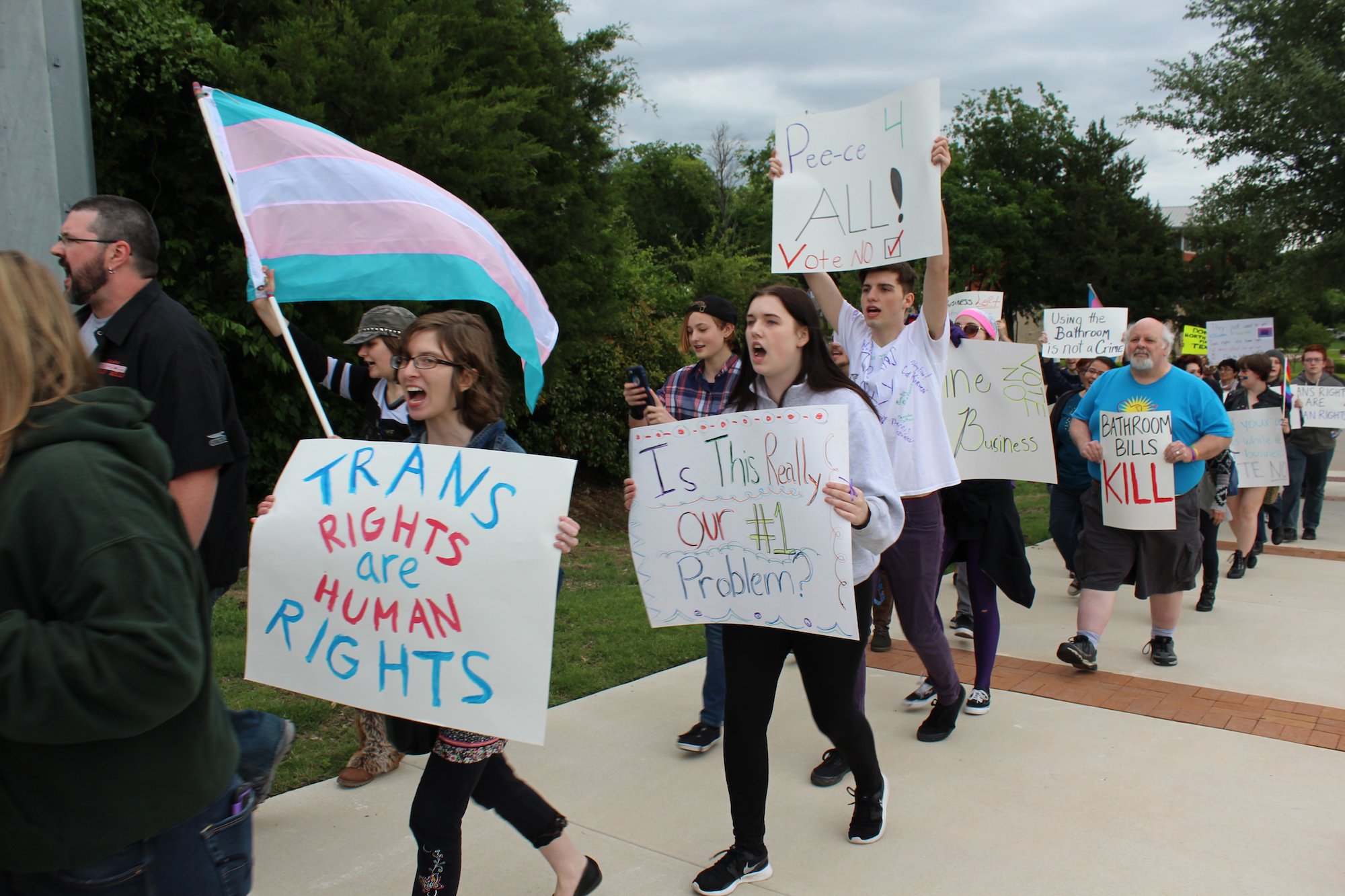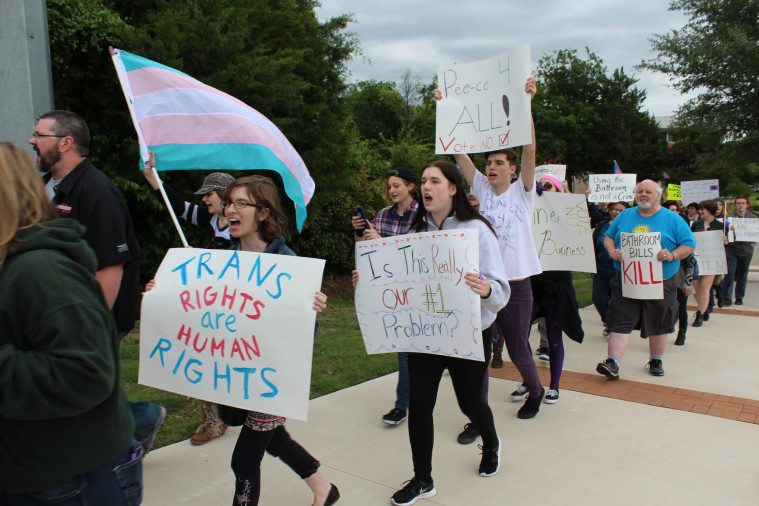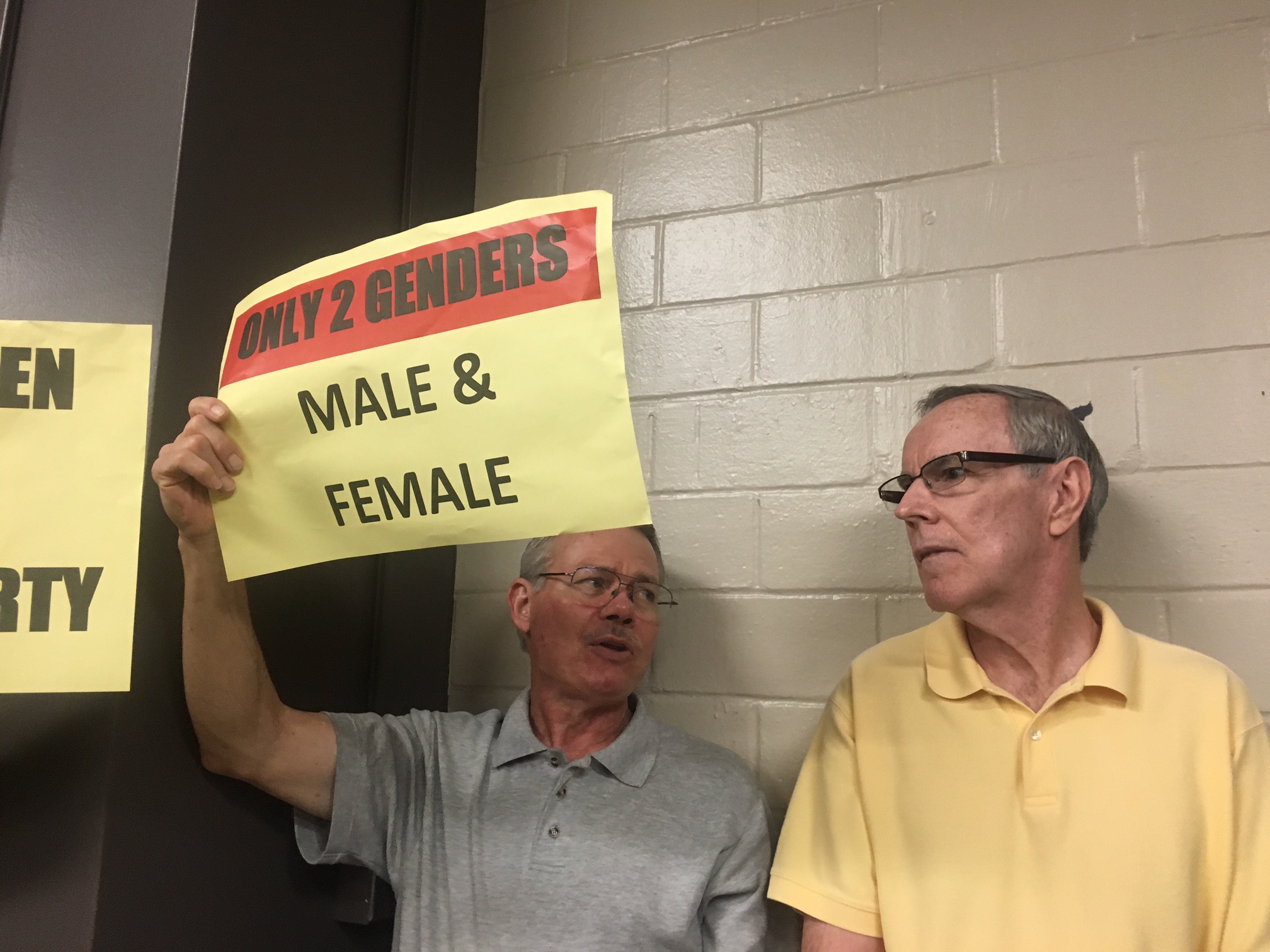
Dan Patrick’s ‘Bathroom Bill’ is State-Sponsored Bullying, and Trans Texans Are Fighting Back
Transgender Texans already face violence and discrimination, and the ‘bathroom bill’ would only increase the threat.


Most of us would probably agree that it’s not a good idea for the principal to arm schoolyard bullies. We want authority figures to limit a bully’s capacity for harm, not encourage or abet it. But inciting violence is exactly what our representatives in Austin — particularly Lieutenant Governor Dan Patrick — are doing by pushing Senate Bill 6, the so-called Texas Privacy Act.
SB 6 sets out four provisions. First, it bans enforcement of trans-inclusive nondiscrimination policies, requiring employees and visitors in government buildings to access gender-segregated spaces according to their birth certificates. Second, it requires the same birth certificate rule at all public schools. Any entity that doesn’t enact such a policy encounters the third provision, a noncompliance fine of up to $10,500 per day. Lastly, the bill enhances penalties for certain crimes committed in gender-segregated spaces.
Patrick and other SB 6 supporters say the bill in no way targets transgender Texans. And that is where their true maliciousness shows. This legislation is no different than pinning pink triangles on certain kids on the playground, then giving the schoolyard bully a baseball bat with a pink triangle on it and saying, “Have fun playing baseball (wink wink, nudge nudge).”
SB 6 identifies a target without naming it and erases policy intended to offer at least some protection for vulnerable populations, building a legal excuse for harming those people and for coercing them not to fight back. Once the law is in place, the “responsible adults” will turn their backs and let others carry out the actual violence.
For several years now, our schools have been expanding policy that protects trans children. This is much-needed, because about 77 percent of trans and gender-nonconforming students experience harassment or other violence due to their gender. About one-third of that violence comes from teachers and staff; 36 percent report being disciplined for fighting back against their assailant. Because violence against trans and gender-diverse kids is so pervasive, schools have increasingly allowed students to use gender-affirming restrooms and changing areas because not doing so identifies them as trans and makes them a target for violence. SB 6 would eradicate these protections for the estimated 13,800 transgender youth ages 13 to 17 in Texas.
Employment protections have followed the same trajectory. About 80 percent of trans Americans face discrimination or violence, or take steps to avoid violence, at work. Denying access to appropriately gendered spaces is a sure way to place a target on them for violence. Wouldn’t we rather support positive engagement with employees than set up barriers? Encouraging violence could drive trans Texans out of the workforce and into underground economies and emergency access to social services.
General social ostracization also increases negative social and health outcomes. One measure of this is the lifetime attempted suicide rate: 40 percent for trans people compared to 4.6 percent for the general population.
And finally, SB 6 will negatively impact trans people in how it criminalizes assault. Marginalized groups tend to be disproportionately affected by the criminal justice system, and the trans community is no exception. As one trans survivor of a sexual assault described their experience: “The legal system would blame us for our own rapes and say we had it coming.”
Lifelong problems increase as a result of discrimination and violence in schools, where trans people often underperform or drop out, and in workplaces, which deny us jobs or set up barriers that impede not just success, but often simple continued employment.
As a trans woman and an advocate, I’ve heard countless stories of trans Texans who have endured discrimination and the threat of violence. A trans woman in East Texas fled for her life after an assault only to later find dead animals repeatedly hung on her porch railing. A trans man at a trade school was threatened by another student with a gun after the school outed him; when the school disclosed his address, he quit and moved out of fear for the safety of his child. A friend was stabbed with an ice pick; another was beaten while walking in a park; another was threatened with arrest for “impersonating a woman.”
Fortunately, I’ve not experienced violence related to being trans, but the potential is always with me. The threat will increase if SB 6 passes. However, if that happens, I and many others will violate policy that SB 6 engenders, even if insistence on our right to relative safety in appropriately gendered spaces means arrest. We will not give in to administrative bullies.


